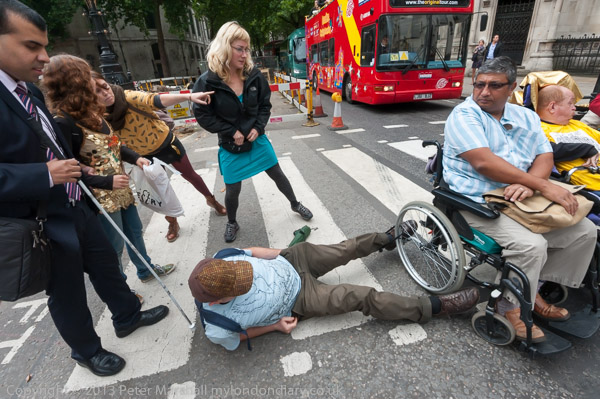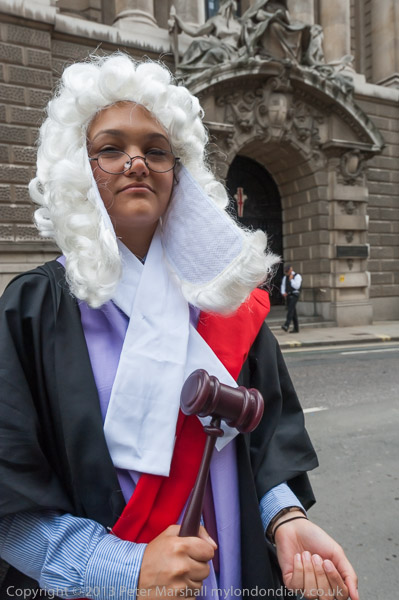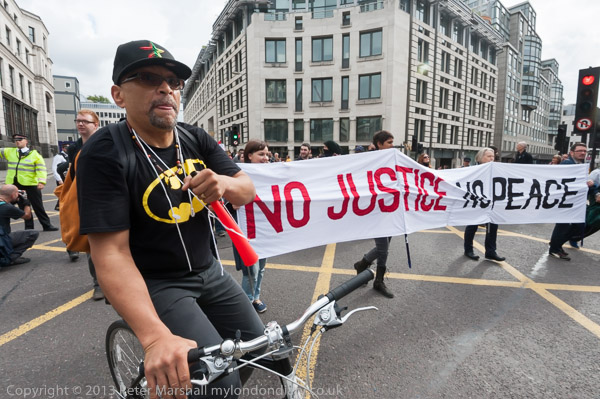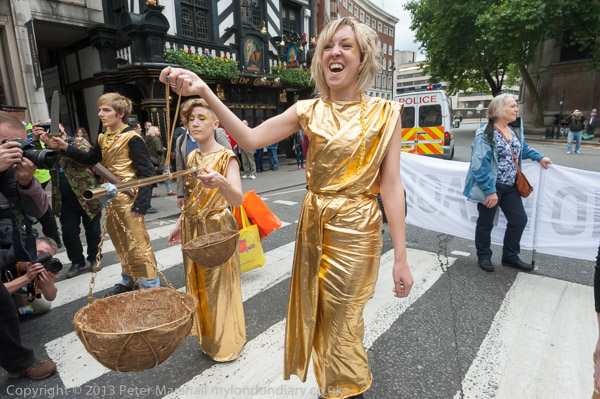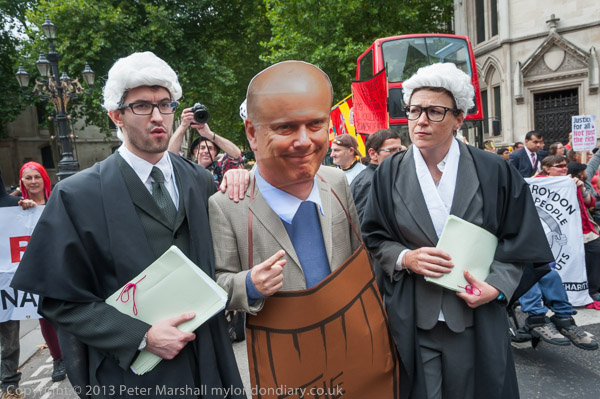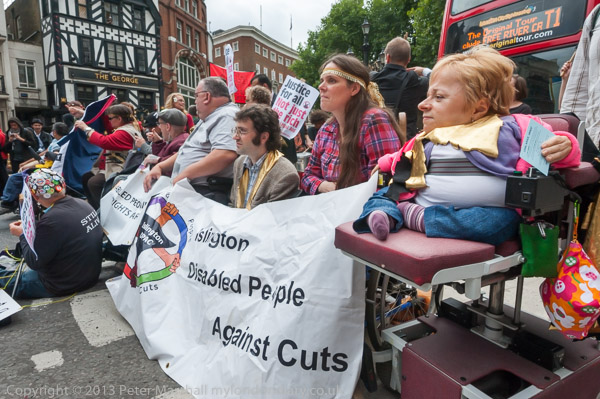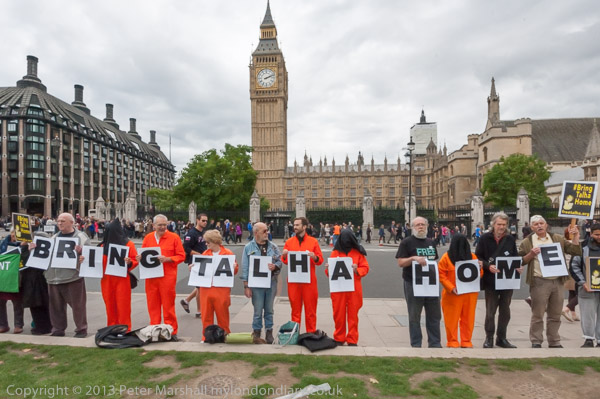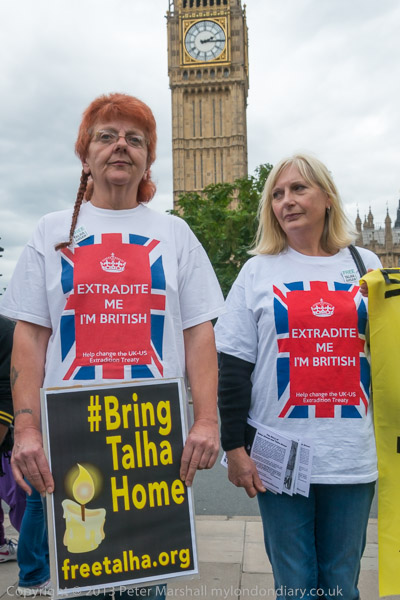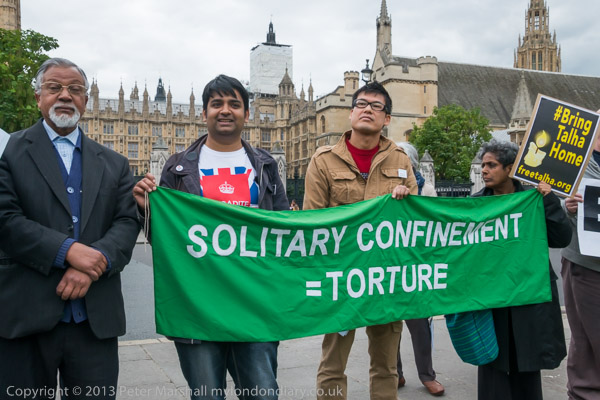International Day in support of victims of Torture: The United Nations Convention against Torture and Other Cruel, Inhuman or Degrading Treatment or Punishment came into force internationally on 26 June 1987, and in 1998 the UN declared the 26 June of every year to be the International Day in Support of Victims of Torture.
Over the years I’ve photographed a number of vigils and protests marking the day in London by various groups concerned with human rights, mostly organised by the London Guantánamo Campaign but often joined by others.
No to Torture Vigil – Trafalgar Square, London. Tue 26 June 2012
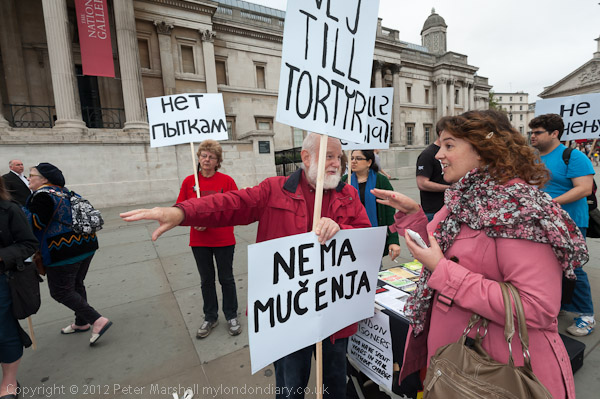
Supporters of the The London Guantánamo Campaign and other human rights activists held up placards saying “NO to torture” in over 30 languages. Other protesters against various human rights violations joined in the protest, including campaigners calling for an end of the Iranian executions of the Baloch people, those against the extraditions of Babar Ahmer, Talha Ahsan and others to the US and the Free Mumia campaign.
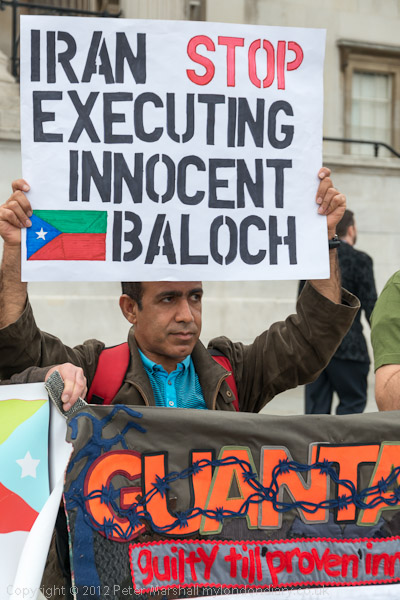
More on My London Diary at No to Torture Vigil.
Say No To Torture – Trafalgar Square, London. Wed 26 Jun 2013
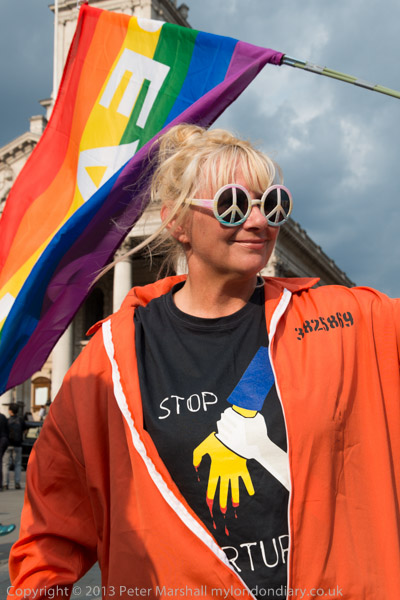
The London Guantanamo Campaign which has been active in calling for the closure of Guantanamo and other prisons including Bagram in Afghanistan since 2006 again held a vigil in Trafalgar Square.
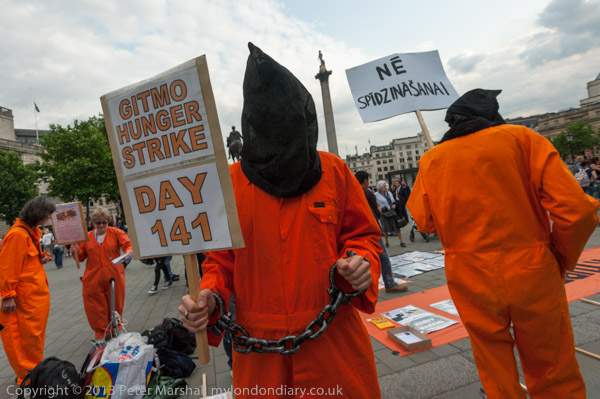
Some wearing orange Guanatanamo-style jump suits and black hoods, they stood in a lin in front of the National Gallery, calling for the release of London resident Shaker Aamer and the other detainees held and tortured without trail. Shaker, along with most of the other prisoners was on the 141st day of a hunger strike, being subjected to regular beatings, being brutally forcibly fed and held in solitary confinement – which also constitues torture under the UN definitions.
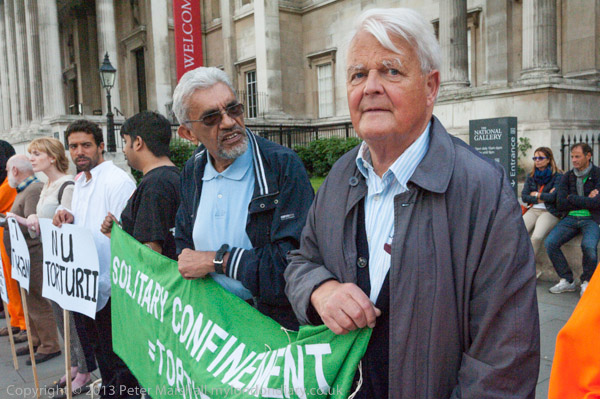
Among those taking part in the vigil was veteran peace campaigner Bruce Kent. The ‘Say No To Torture’ protest overlapped with another human rights protest over Balochistan, a ‘nation without a state.’ Balochs live mainly in Pakistan and have been subject to arrests and other human rights violations including torture by the Pakistan authorities for campaigning for independence.
More on My London Diary at Say No To Torture.
Torture Solidarity Vigil – Trafalgar Square, London. Thu 26 Jun 2014
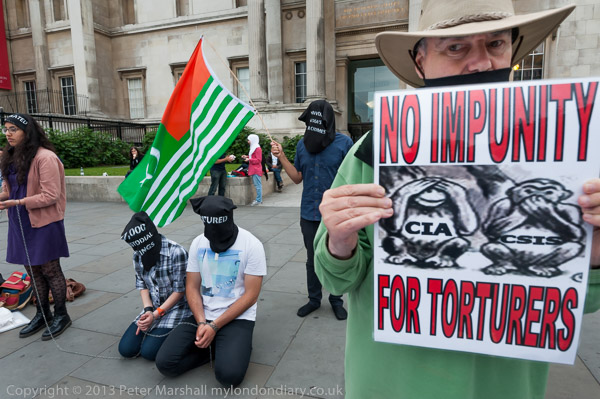
In 2014, Kashmiris wore black hoods and headbands with messages ‘Mutilated’, ‘Raped’, ‘Tortured’, ‘Executed’ and waved Kashmiri flags to protest at the widespread human rights abuses by the 7,000 custodial killings and torture of prisoners by the Indian state Indian state in Kashmir- 1 in 5 Kashmiris is a torture victim.
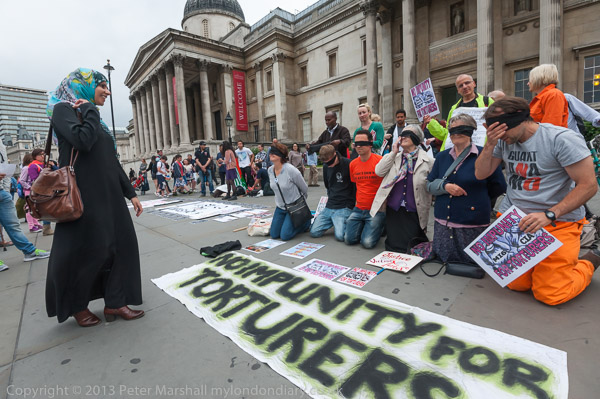
Also in Trafalgar Square was a vigil by the The London Guantanamo Campaign with people holding posters and blindfolded or gagged, calling for the release of prisoners from the US prison camp and an end to impunity for torturers.
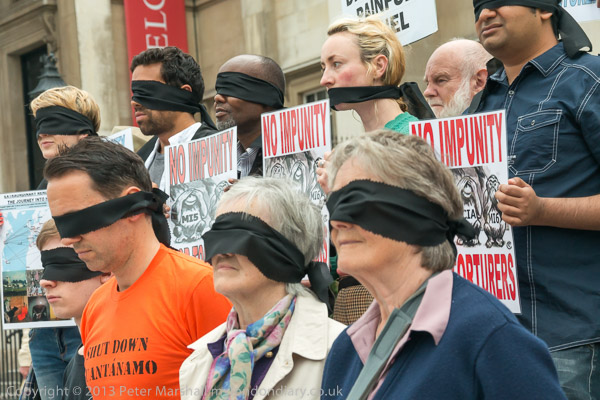
The UK has failed to take proper action over allegations of prisoner abuse by the British military in Iraq and Afghanistan and has continued to be involved in the “rendition” and torture of British and foreign nationals abroad. Our government prevents violations becoming public knowledge, relying on secret courts and partial and biased investigations.
More on My London Diary at Torture Solidarity Vigil.
UN Day for Victims of Torture – Trafalgar Square, London. Fri 26 Jun 2015
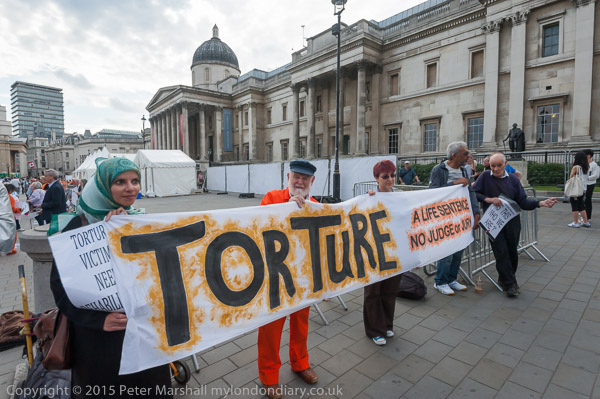
The London Guantánamo Campaign and others were back again in Trafalgar Square in a solidarity vigil in recognition of the suffering and rights of victims and survivors of torture, calling on those in positions of power able to put an end to the use of torture.
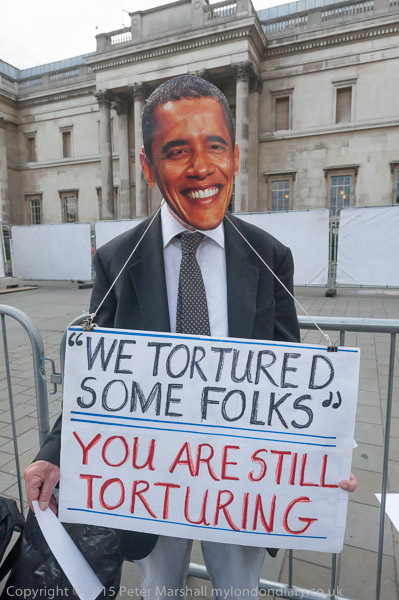
Obama had promised in 2010 to end the shame of Guantanamo, but the detentions and torture continued throughout his presidency, though there were some releases.
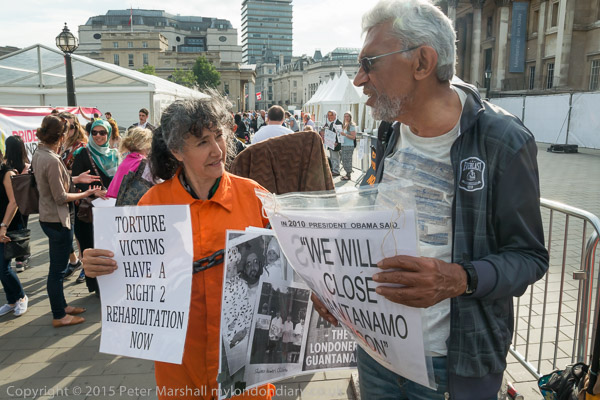
More on My London Diary at UN Day for Victims of Torture.
Here are links to further protests I covered in recent years on 26 June against torture, in Trafalgar Square in 2016, at the US Embassy in Nine Elms in 2018 and by Balochs in Trafalgar Square in 2019. In 2017 I had a day off work for medical tests, and in 2020 there was no vigil because of the lockdown.
